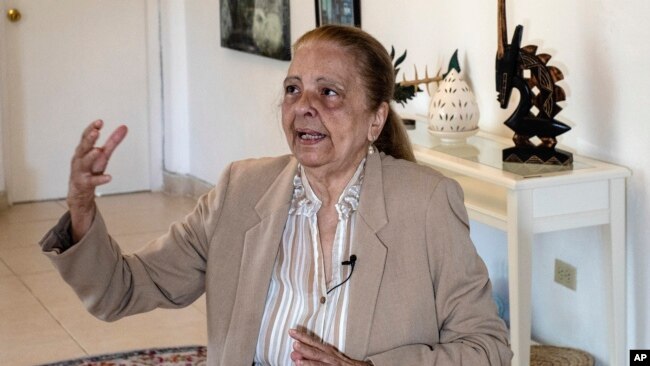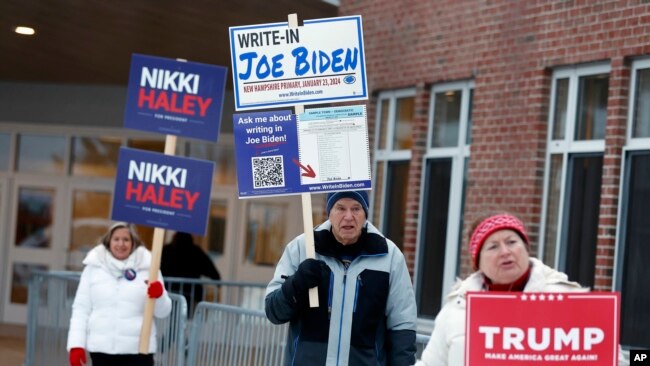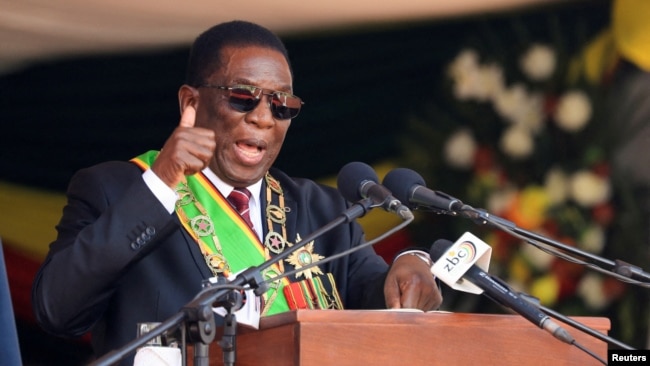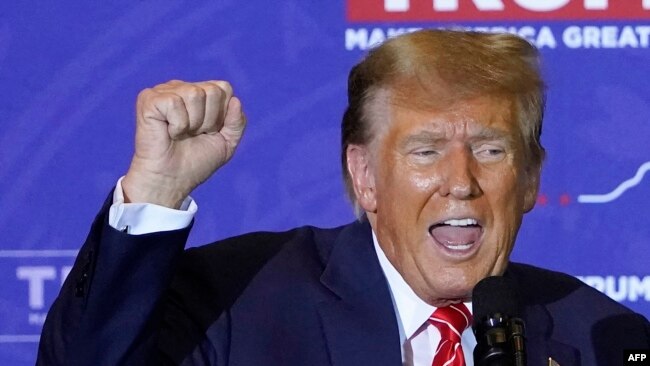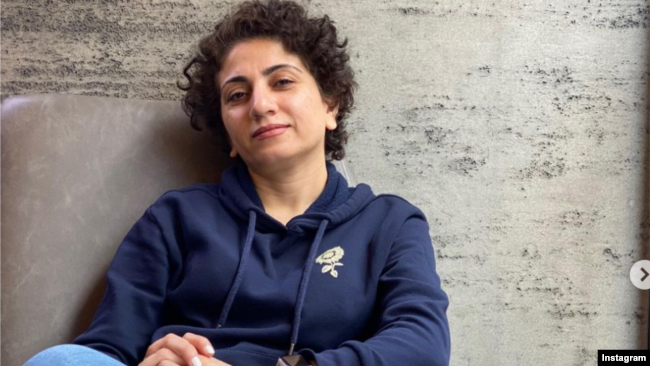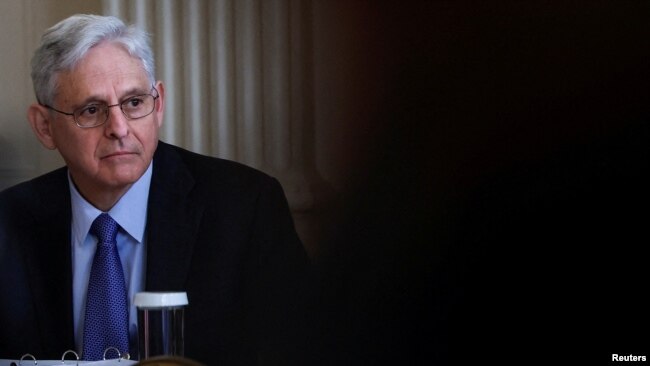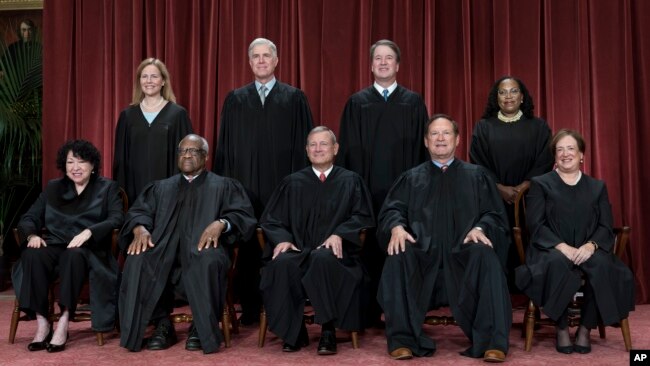놀라운 인구 조사 결과 속에 푸에르토리코 연못 사람들이 경주를 합니다
Puerto Rico Ponders Race Amid Surprising Census Results
페이지 정보
작성자 Associated Press 작성일 21-10-16 01:43 댓글 0본문
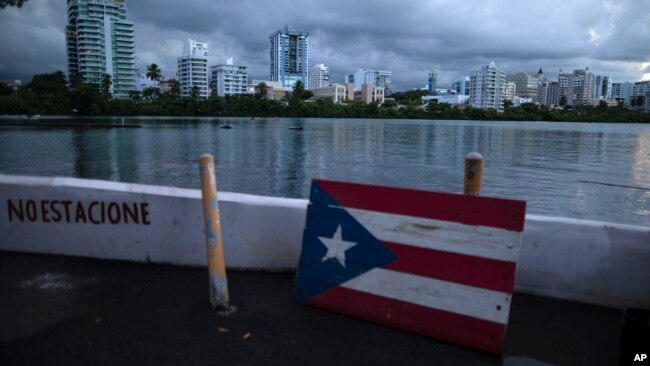
파일 - 9월 푸에르토리코 산후안의 콘다도 석호 선착장에 나무 푸에르토리코 국기가 게양되어 있습니다.
FILE - A wooden Puerto Rican flag is displayed on the dock of the Condado lagoon in San Juan, Puerto Rico, Sept. 30, 2021.
가장 최근의 인구조사에서 "백인"이라고 밝힌 푸에르토리코의 사람들의 수가 거의 80%나 급감하여 인종이 추적되지 않고 대중 앞에서 거의 토론되지 않았던 과거로부터 탈피한 한 섬에서 정체성에 대한 대화를 촉발시켰습니다.
The number of people in Puerto Rico who identified as "white" in the most recent census plummeted almost 80%, sparking a conversation about identity on an island breaking away from a past where race was not tracked and seldom debated in public.
미국 영토의 330만 명의 사람들이 인종적 정체성을 고려하기 시작하면서 많은 사람들을 놀라게 했고, 이론들이 무성했습니다.
The drastic drop surprised many, and theories abound as the U.S. territory's 3.3 million people begin to reckon with racial identity.
"페르토 리코인들은 그들의 하얀색에 별표가 붙는다는 것을 알고 있습니다,"라고 뉴욕 헌터 대학의 정치 인류학자이자 푸에르토리코 연구 센터의 책임자인 야리마르 보니야는 말했습니다. "그들은 자신들이 미국 기준으로는 백인이 아니라는 것을 알지만 푸에르토리코 기준으로는 흑인이 아닙니다."
"Puerto Ricans themselves are understanding their whiteness comes with an asterisk," said Yarimar Bonilla, a political anthropologist and director of the Center for Puerto Rican Studies at Hunter College in New York. "They know they're not white by U.S. standards, but they're not Black by Puerto Rico standards."
2020년 인구조사에서 거의 50%에 가까운 329만 명 중 160만 명이 "두 인종 이상"으로 확인되었고, 이는 2000년 인구조사에서 이 옵션을 선택한 3% 또는 372만 명 중 약 1억2200명에서 급증한 수치입니다. 그들 대부분은 "백인과 다른 인종"을 선택했습니다.
Nearly 50% of those represented in the 2020 census — 1.6 million of 3.29 million — identified with "two races or more," a jump from 3% — or some 122,200 of 3.72 million — who chose that option in the 2000 census. Most of them selected "white and some other race."
한편, 83만8천명 이상이 "일부 다른 인종"이라고 밝혀 10년 전 약 28만9천900명에 비해 거의 190%나 급증했습니다. 하지만 보닐라는 인구조사국 관계자들이 아직 어떤 인종을 선택했는지 발표하지 않았다고 말했습니다. 전문가들은 연방 정책이 인종이 아닌 민족성으로 정의했음에도 불구하고 사람들이 "Puerto Rican", "Hispanic" 또는 "Latino"라고 썼을 가능성이 높다고 믿고 있습니다.
Meanwhile, more than 838,000 people identified as "some other race alone," a nearly 190% jump compared with some 289,900 people a decade ago, although Bonilla said Census Bureau officials have yet to release what races they chose. Experts believe people likely wrote "Puerto Rican," "Hispanic" or "Latino," even though federal policy defines those categories as ethnicity, not race.
인종에 대한 그들의 반응을 바꾼 사람들 중에는 45세의 타마라 텍시도르가 있었습니다. 그는 2010년에 "기타"를 선택했고 이번에는 자신을 "애프로데스켄트"라고 밝히기로 선택했습니다. 그녀는 인구 조사원이었던 그녀의 오빠와 이야기를 한 후에 결정을 내렸다고 말했는데, 오빠는 그가 집집마다 다니면서 마주친 사람들이 인종에 관한 질문으로 종종 어려움을 겪었다고 말했습니다.
Among those who changed their response to race was 45-year-old Tamara Texidor, who selected "other" in 2010 and this time opted to identify herself as "Afrodescendent." She said she made the decision after talking to her brother, who was a census worker and told her how people he encountered when he went house to house often had trouble with the question about race.
Texidor는 그녀의 선조에 대해 반성하기 시작했고, 그녀가 아버지의 노예들로부터 내려왔기 때문에 그것을 기리고 싶었습니다.
Texidor began reflecting about her ancestry and wanted to honor it since she descended from slaves on her father's side.
"저는 '기타'를 선택하지 않을 거예요," 라고 그녀는 인구조사를 작성할 때 생각했다고 회상했습니다. "저는 제가 대단한 존재라고 느낍니다."
"I'm not going to select ‘other,'" she recalled thinking when filling out the census. "I feel I am something."
전문가들은 2020년 인구조사에서 무엇이 중요한 변화를 촉발시켰는지에 대해 여전히 논쟁하고 있습니다. 어떤 사람들은 몇 가지 요인들이 작용하고 있다고 믿습니다. 예를 들어, 자구의 수정, 인구조사국의 처리 및 대응 코드 변경 등이 그것입니다.
Experts are still debating what sparked the significant changes in the 2020 census. Some believe several factors are at play, including tweaks in wording and a change in how the Census Bureau processes and codes responses.
보닐라 또한 인종적 정체성의 푸에르토 리코에서 증가하는 인식은 지난 10년 동안“여분의 강렬한 racialization”기여했다고 할지도 모른다고 말한 역할을 했다. 생각한다.그녀는 다른 인류 학자들은 그 변화 많은 사람들이 미국 영토 허리케인 마리아, 치명적인 경제 위기에서 벗어나기 위해 애쓰고에 실패한 연방 대응 생각하기에 분노에서 비롯된다고 주장한다.
Bonilla also thinks a growing awareness of racial identity in Puerto Rico played a part, saying that "extra intense racialization" in the past decade might have contributed. She and other anthropologists argue that change stemmed from anger over what many consider a botched federal response to a U.S. territory struggling to recover from Hurricane Maria and a crippling economic crisis.
"그들은 마침내 자신들이 2류 시민처럼 대우받는다는 것을 알게 되었습니다,"라고 사회문화 인류학자인 바바라 아바디아-렉사흐는 푸에르토리코 사람들에 대해 말했습니다.
"They've finally understood that they're treated like second-class citizens," Bárbara Abadía-Rexach, a sociocultural anthropologist, said of Puerto Ricans.
2020년 인구조사에서 또 다른 중요한 변화는 흑인과 흑인으로만 확인된 228,700명이 조금 넘는 데 그쳤는데, 이는 10년 전 461,000명보다 거의 50% 감소한 수치입니다. 이러한 감소는 푸에르토리코의 풀뿌리 단체들이 사람들에게 아프리카 유산을 받아들이도록 촉구하기 위한 캠페인을 시작하고 인종 차별에 대한 인식을 높이는 동안에도 일어났습니다. 비록 그들이 "두 개 이상의 인종" 카테고리의 증가로 고무되었다고 말했지만요.
Another critical change in the 2020 census was that only a little over 228,700 identified solely as Black or African American, a nearly 50% drop compared with more than 461,000 who did so a decade ago. The decline occurred even as grass-roots organizations in Puerto Rico launched campaigns to urge people to embrace their African heritage and raised awareness about racial disparities, although they said they were encouraged by the increase in the "two or more races" category.
보닐라는 현재 푸에르토리코에서 이러한 불균형이 대유행 기간 동안 발생했는지 여부를 판단할 수 있는 신뢰할 만한 자료가 없다고 지적하면서 코로나바이러스 검사, 입원 또는 사망자에 대한 인종적 자료는 없다고 지적했습니다.
Bonilla noted Puerto Rico currently has no reliable data to determine whether such disparities have occurred during the pandemic, noting that there is no racial data on coronavirus testing, hospitalizations or fatalities.
이 섬의 정부는 또한 노숙자나 투옥자를 포함한 인구에 대한 인종 정보를 수집하지 않는다고 아바디아-렉사흐는 덧붙였습니다.
The island's government also does not collect racial data on populations, including those who are homeless or incarcerated, Abadía-Rexach added.
"인종차별의 존재를 부인하는 것은 푸에르토리코의 많은 흑인들을 보이지 않게 만들고, 범죄화시키고, 인간성을 떨어뜨립니다," 라고 그녀가 말했습니다.
"The denial of the existence of racism renders invisible, criminalizes and dehumanizes many Black people in Puerto Rico," she said.
그러한 데이터의 부족은 푸에르토리코의 역사에서 기인할 수 있습니다. 1960년부터 2000년까지, 그 섬은 자체 인구 조사를 실시했고 인종에 대해서는 묻지 않았습니다.
The lack of such data could be rooted in Puerto Rico's history. From 1960 to 2000, the island conducted its own census and never asked about race.
"우리는 모두 섞이고 평등해야 했고, 인종은 미국적인 것이어야 했습니다,"라고 보닐라는 말했습니다.
"We were supposed to be all mixed and all equal, and race was supposed to be an American thing," Bonilla said.
당시 푸에르토리코가 인종 정보를 추적해야 한다는 주장도 있었지만, 다른 사람들은 인종적 차이를 강요하거나 강화하는 분열적인 움직임으로 보았고, 프랑스에서는 인종이나 민족에 대한 공식적인 데이터를 수집하지 않았습니다.
Some argued at the time that Puerto Rico should be tracking racial data while others viewed it as a divisive move that would impose or harden racial differences, a view largely embraced in France, which does not collect official data on race or ethnicity.
푸에르토리코 대학의 인류학자이자 교수인 이사르 고드로에게 있어서, 이러한 유형의 데이터는 매우 중요합니다.
For Isar Godreau, an anthropologist and professor at the University of Puerto Rico, that type of data is crucial.
"피부색은 사람들을 다소 인종 차별에 취약하게 만드는 중요한 표시입니다," 라고 그녀가 말했습니다.
"Skin color is an important marker that makes people vulnerable to more or less racial discrimination," she said.
이 자료는 사람들이 인종적 정의를 위해 싸우고 자원의 배분을 결정하는데 도움을 준다고 고드로 교수는 말했습니다.
The data helps people fight for racial justice and determines the allocation of resources, Godreau said.
2020년 인구조사에서 특히 2010년 백인 대 280만 명 이상으로 확인된 56,592명의 사람들이 푸에르토리코에서 인종 정체성에 대한 관심이 증가하고 있는 가운데, 인종에 대한 최근의 조사조차도 "인류의 구성원"에서 "평범하다" 그리고 "모든 사람들과 잘 지낸다"에 이르는 다양한 반응을 불러일으켰습니다. 비공식적으로, 이 섬의 사람들은 "우유가 든 커피"를 포함하여, 누군가의 피부색을 묘사하기 위해 다양한 단어를 사용합니다.
The major shift in the 2020 census — especially how only 560,592 people identified as white versus more than 2.8 million in 2010 — comes amid a growing interest in racial identity in Puerto Rico, where even recent surveys about race prompted responses ranging from "members of the human race" to "normal" to "I get along with everyone." Informally, people on the island use a wide range of words to describe someone's skin color, including "coffee with milk."
이러한 관심은 주로 젊은 세대에 의해 촉발됩니다. 그들은 수세기 동안 타악기를 사용하는 전통 음악인 봄바와 플레나의 수업과 헤드랩을 만들거나 착용하는 방법에 대한 워크샵에 등록했습니다.
That interest is fueled largely by a younger generation: They have signed up for classes of bomba and plena — centuries-old, percussion-powered musical traditions — as well as workshops on how to make or wear headwraps.
섬 내 전문직 종사자들이 오랫동안 차지했던 드라이 결과를 피하면서 곱슬머리를 전문으로 하는 미용실이 늘고 있습니다. 일부 국회의원들은 2020년 인구조사 결과를 인용한 법안을 제출했고, 만약 승인된다면 헤어스타일에 따라 누군가를 차별하는 것은 불법이 될 것입니다. 미국의 몇몇 주들도 이미 비슷한 법을 가지고 있습니다.
More hair salons are specializing in curly hair, eschewing the blow-dried results that long dominated professional settings in the island. Some legislators have submitted a bill that cites the results of the 2020 census and that if approved would make it illegal to discriminate against someone based on their hair style. Several U.S. states already have similar laws.
2020년 인구조사에서 무엇이 그렇게 많은 변화를 촉발시켰는지에 대한 논쟁이 계속되고 있는 가운데, 보닐라는 2030년 인구 조사 결과가 어떤 모습일지 중요한 질문이 있다고 말했습니다. "이러한 패턴이 강화되는 것을 볼 수 있을까요, 아니면 2020년이 어느 정도 일시적인 순간이었을까요?"
As debate continues on what sparked so many changes in the 2020 census, Bonilla said an important question is what the 2030 census results will look like. "Will we see an intensification of this pattern, or will 2020 have been kind of a blip moment?"
출처 : VOANews
댓글목록 0
등록된 댓글이 없습니다.




